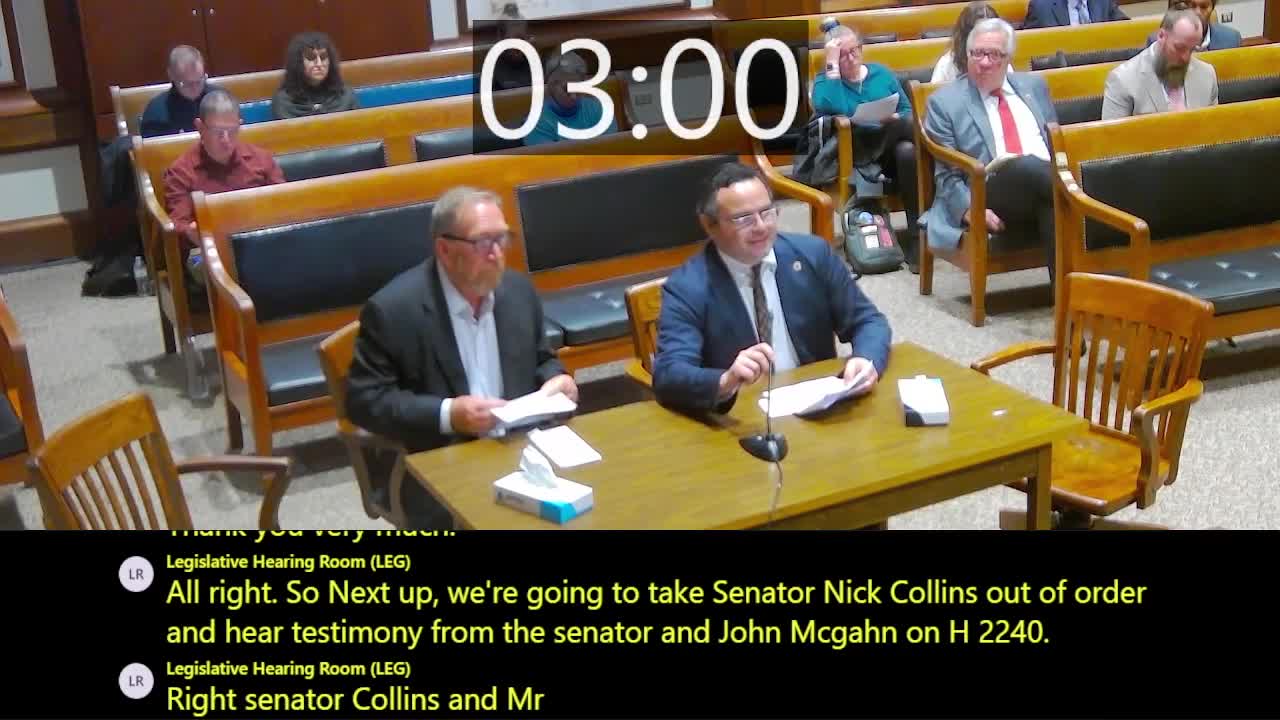Operators and treatment providers back discharge/referral rules for certified sober homes; privacy protections also urged
Get AI-powered insights, summaries, and transcripts
Subscribe
Summary
Sober‑home operators, the Massachusetts Alliance for Sober Housing and treatment providers told the committee that H.2240 would protect sober residences by requiring operator discharge/relocation policies for residents who return to active substance use, and witnesses supported H.2239 to safeguard resident privacy and reduce stigma.
The committee heard layered testimony in support of two related bills: H.2240, which would require certified sober‑home operators to adopt discharge and referral policies for residents who cannot be supported safely in a peer recovery environment, and H.2239, which would protect the privacy of sober‑home residents, including people in domestic violence situations.
Denise Mansdorf of the Massachusetts Alliance for Sober Housing (MASH) told the committee MASH certifies about 200 sober homes with over 3,000 certified beds in the Commonwealth and that sober homes serve as a crucial bridge between clinical treatment and independent living. She said H.2240 is "about safety" and would require operators to have relocation plans and referral pathways when a resident’s active use or violent behavior makes the house unsafe for others.
Operators and providers explained the problem: a resident who returns to use can trigger relapse among others and, under current practice, owners often must pursue landlord–tenant or housing court remedies that can take months while the home’s recovery environment deteriorates. Treatment and sober‑home witnesses described cases in which a resident who returned to use solicited funds for drugs from other residents and engaged in hostile behavior; operators said they tried repeated outreach and referrals before seeking discharge.
H.2239 would add privacy protections for residents, which proponents said helps prevent stigma, reduces the risk of retaliation (for example, against domestic violence survivors) and supports neighbor relations.
Limitations and clarifications: Testimony made clear that certification through MASH is voluntary; the bills discussed do not make certification mandatory. Several witnesses emphasized that discharge policies should be fair, include warm‑handoff referral pathways (detox, stabilization, treatment), and not simply remove people without offering alternatives. Operators asked that measures include clear refund/financial‑agreement expectations and consistent standards for how discharge and relocation are executed.
Ending: The committee recorded broad support from providers, sober‑home operators and recovery advocates and heard requests for careful drafting to preserve due process and ensure timely access to higher levels of care for residents who need them.
